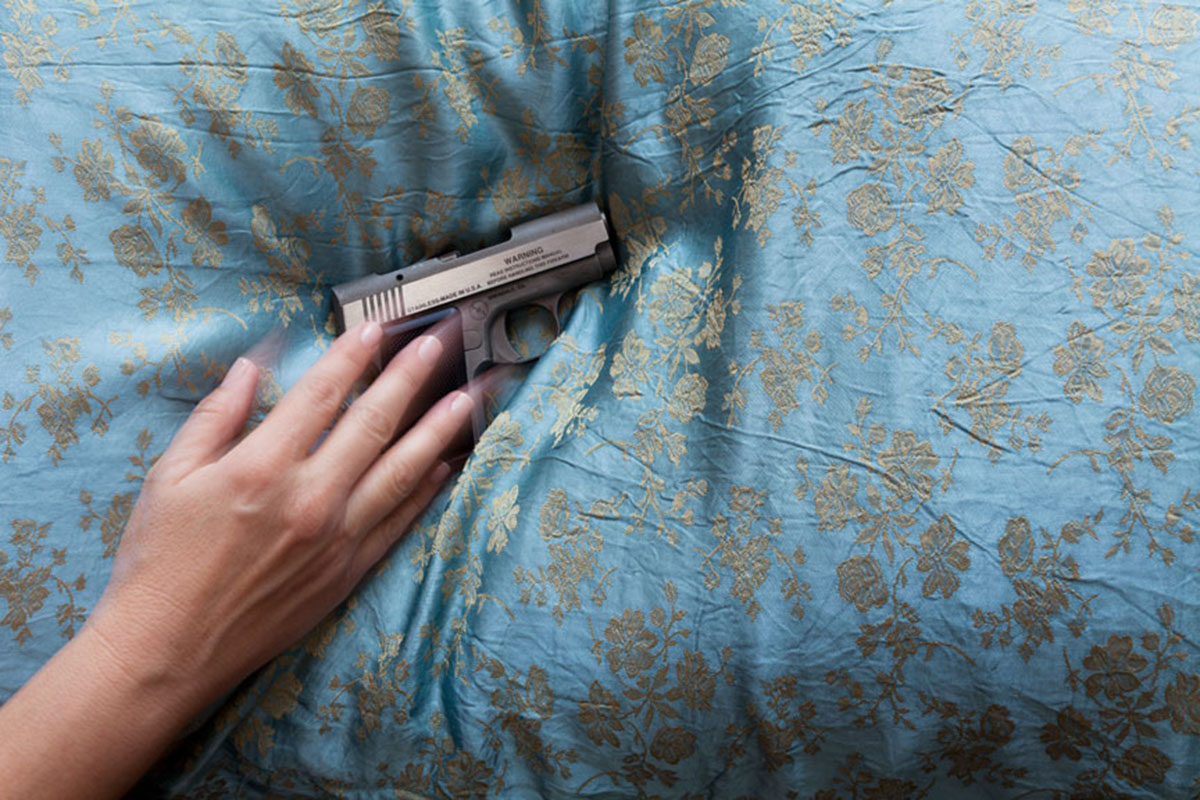Table of Contents
When someone is addicted to a drug, such as alcohol, nicotine, or opiates, there are standardized, objective tests for diagnosis:
- The addictive substance has to be available for experimentation. If it's not available, addiction is impossible.
- The initial use of the substance is pleasurable, and subsequent uses reinforce that pleasure.
- The user becomes tolerant of more and more of the substance.
- The user becomes either dependent on the substance, that is, will undergo withdrawal if it is not available, or habituated to the substance, makes its use a part of a daily routine.
- There are withdrawal symptoms if the drug is taken away.
- There is physical dependence on the drug for normal functioning.
- Use of the substance is continued even in the face of obvious harm.
- The use of the substance is surrounded by rationalization and denial.

A gun isn't a chemical you put into your body, so physical dependence is not possible. However, there are other eerie similarities between addiction and gun ownership in the US.
- Are guns available in the USA? Absolutely, with very few exceptions.
- Is there positive reinforcement for using guns? There's immediate positive reinforcement for being a good shot if you are using a gun on a skeet range or for target practice. Some users just like to hear the bang-bang-bang pow-pow-pow of their firearms.
- Do gun owners build up tolerance for guns? In 1994, the average gun-owning family had four weapons. In 2014, the number was eight, and the National Rifle Association strenuously objects to any suggestion that gun ownership should be limited.
- Are there withdrawal symptoms when gun owners lose their guns? We actually haven't seen that happen yet.
- Is there weapon-seeking behavior? Absolutely. Is there habituation? Yes. Is there rationalization and denial? Big check.
There do seem to be significant parallels between gun ownership and drug addiction, but should anyone really care? After all, is it NRA members who out in inner cities committing crimes? Doesn't gun ownership make living in perilous times safer?
The answer seems to be, not always:
- A Philadelphia study found that people who carried a concealed firearm who were the victims in holdups were 4.2 times more like to be shot than those who did not.
- A woman in an abusive relationship is 5 times more likely to be killed if the abuser has access to a gun.
- In Texas, holders of concealed carry permits were 4.8 times more likely to be arrested for threatening someone with a firearm than those did not have a concealed carry permit. (To be fair, the concealed carry permit makes tracking down the accused much easier.)
READ The Real Risk Of Being Gunned Down In America
Of course, there is no shortage of academic studies that are less than insightful. A study about California handgun purchases that was published in the British Medical Journal reported that nearly everyone who committed suicide with a handgun owned a handgun. There has even been a study that found that all bullet wounds involved firearms.
The bottom line is, however, that American gun owners tend to be "gun nuts." Addiction to firearms is real. Just as prohibition of other addictive substances has not worked, however, it's doubtful that banning firearms will cure the disease.
- George D. Lundberg, MD. Is American Gun Ownership a Form of Addiction? Medscape At Large. 4 December 2015.
- Photo courtesy of m01229
- Photo courtesy of chuybenitez: www.flickr.com/photos/chuybenitez/6945244185
- Photo courtesy of chuybenitez: www.flickr.com/photos/chuybenitez/6945244185


Your thoughts on this